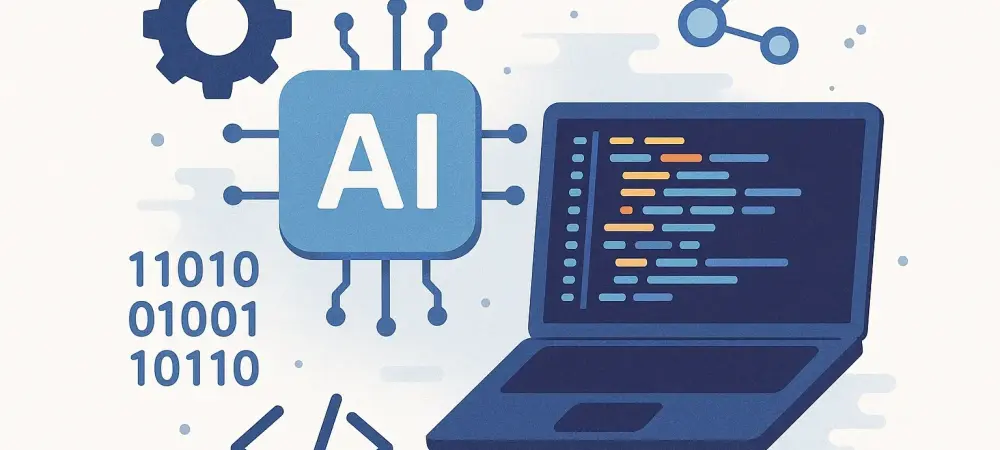The technological landscape continues to shift dramatically with the rise of artificial intelligence (AI) in various domains, notably within the programming industry. Companies in the coding sphere are increasingly confronted with the dilemma of reconciling traditional programming skills with AI-driven coding capabilities. This development raises critical questions about the future of programming skills and what it means for the industry at large. As enterprises search for proficient developers, the prevalence of AI tools not only transforms coding practices but also impacts the recruitment process significantly.
Overview of the Coding Industry
The coding industry is a pivotal component of the global economy, influencing everything from enterprise software solutions to personal applications. Currently, it is characterized by a vibrant spectrum of activities, including software development, mobile app creation, and quality assurance testing. Technological advancements continuously redefine these segments, leading to rejuvenated market players and innovative tech applications. Regulations around data protection and privacy remain central in maintaining ethical standards within this rapidly evolving landscape. Market players and regulatory bodies alike work diligently to balance innovation with compliance, ensuring technological progression aligns with societal expectations.
Key Trends and Developments
Emerging Trends in AI Coding
Emerging trends in AI-driven coding include the integration of machine learning algorithms and automated code generation tools, such as ChatGPT. These tools enjoy growing popularity due to their potential to expedite the coding process, making software development more accessible to those who lack deep technical skills. Consumer behavior has adapted to these changes, with an increased demand for intuitive and efficient digital solutions. The use of AI in coding promises new opportunities but also calls for an evolution in how programming education is structured to ensure developers understand more than just the code they generate.
Market Analysis and Projections
Market analysis indicates a trajectory of robust growth, with AI’s influence in coding expected to expand significantly in the coming years. Performance indicators show an industry thriving on innovation, with AI-enhanced technologies projected to capture a substantial market share. Projections suggest a dynamic future, where demand for AI-assisted tools becomes a core component of the programming profession, offering opportunities for companies to leverage these advancements for competitive advantage. As such, the industry readies itself for further integration of AI into the fabric of software creation and implementation.
Challenges and Complexities
Despite its potential, the incorporation of AI into coding is not without its challenges. Technological hurdles include the need for AI systems capable of understanding and implementing complex programming logic, not simply generating code snippets. Regulatory challenges arise from ensuring AI-driven tools adhere to stringent data protection laws and security measures—an important consideration given the sensitive nature of proprietary code. Moreover, market-driven challenges reflect the difficulty in maintaining a skilled workforce familiar with foundational programming principles, even as they utilize AI tools. Addressing these challenges requires strategic planning and an emphasis on continuous education and training.
Regulatory Environment
Adhering to a robust regulatory framework is essential for the sustainable growth of AI in coding. Worldwide, governments and institutions are continually updating laws to address the implications of AI technologies, with significant emphasis on data security and intellectual property rights. Compliance remains paramount, necessitating the integration of security measures that safeguard against potential breaches. Companies must stay informed of regulatory shifts to align their practices with ever-evolving standards, ensuring their operations remain lawful and secure while embracing innovative opportunities.
Future Outlook and Innovations
Looking ahead, the industry appears poised for significant transformation, fueled by ongoing innovations and changing consumer expectations. Emerging technologies, such as advanced AI models capable of understanding context and intent, are anticipated to disrupt traditional coding processes. These developments signal a shift in consumer preference toward solutions that are seamlessly integrated with AI functionality. The burgeoning focus on sustainability and ethical AI use may further guide how the industry advances, with a spotlight on creating value while respecting ethical considerations.
Conclusion and Recommendations
The report highlights the pressing need for the industry to adapt to the changing landscape, balancing the efficiency gains AI delivers with the necessity of maintaining robust programming expertise. While AI tools present an invaluable resource, it is crucial to cultivate a workforce capable of leveraging these tools effectively, ensuring that human oversight and understanding remain integral to the process. Future considerations should focus on investment in education and training programs that emphasize fundamental programming principles alongside AI-driven innovations. By doing so, companies can secure their competitive edge and contribute to a sustainable, ethically guided technological future.

